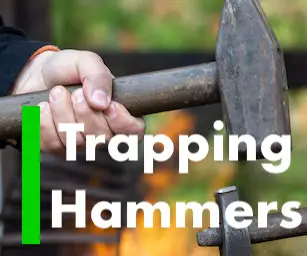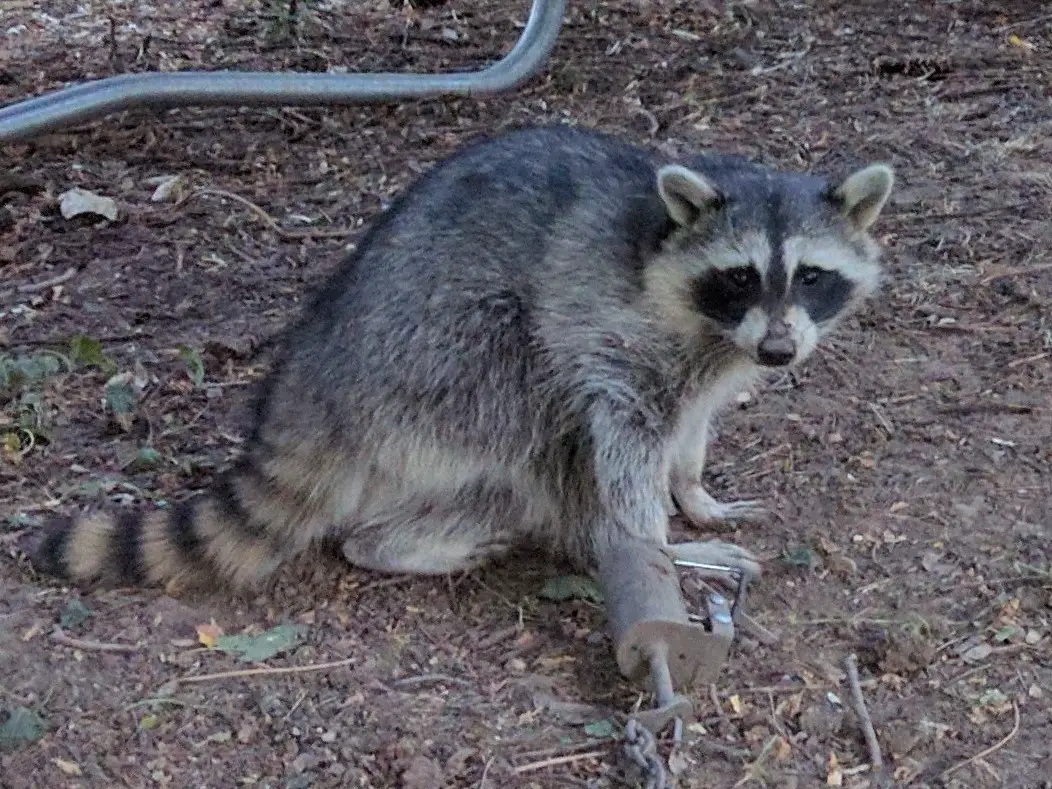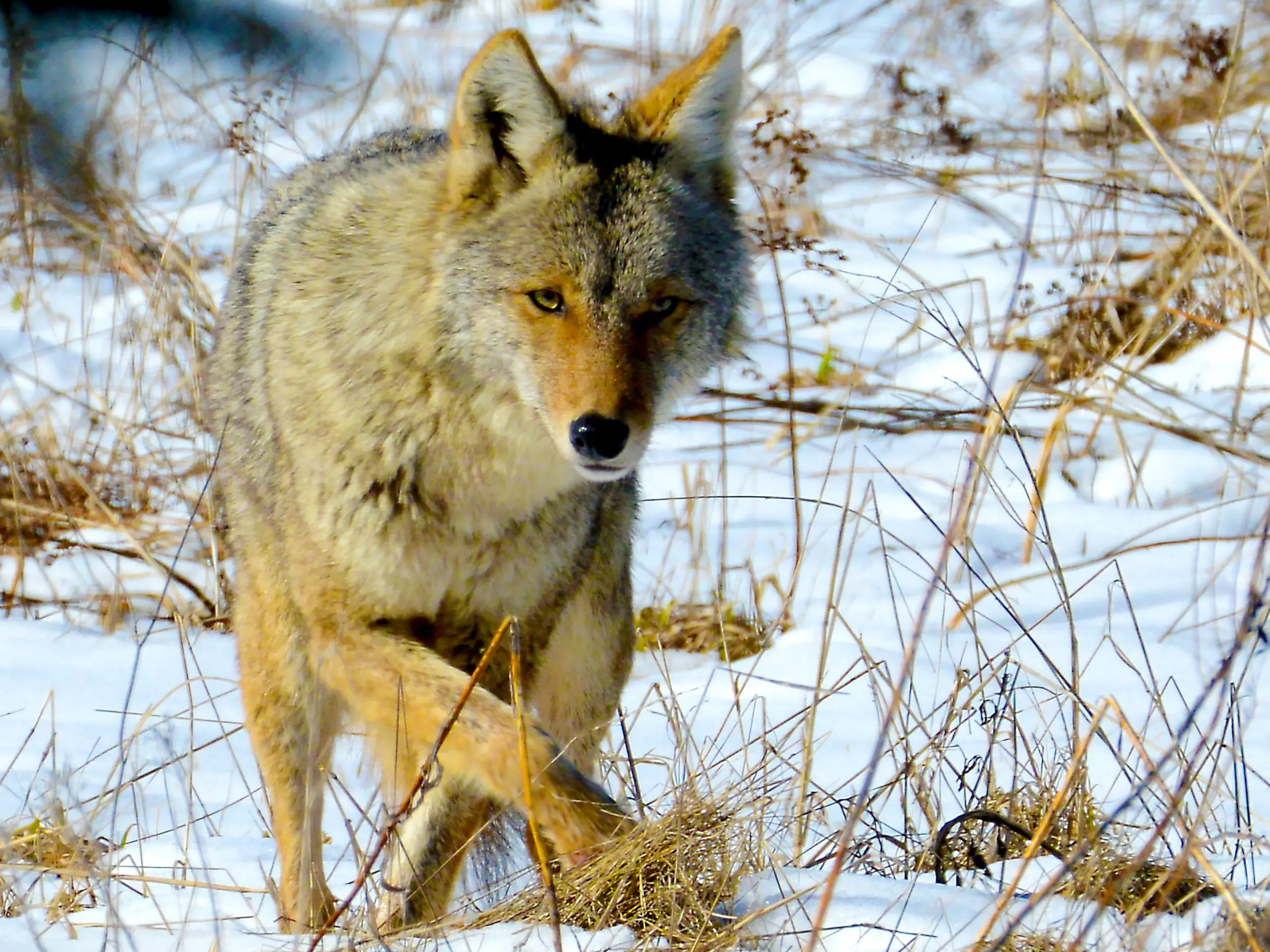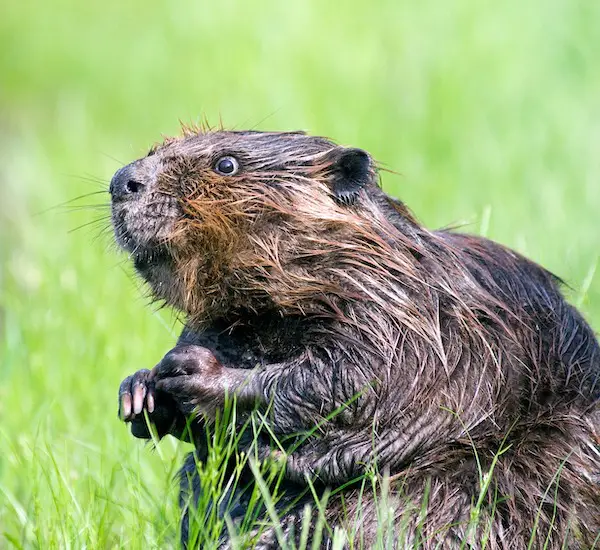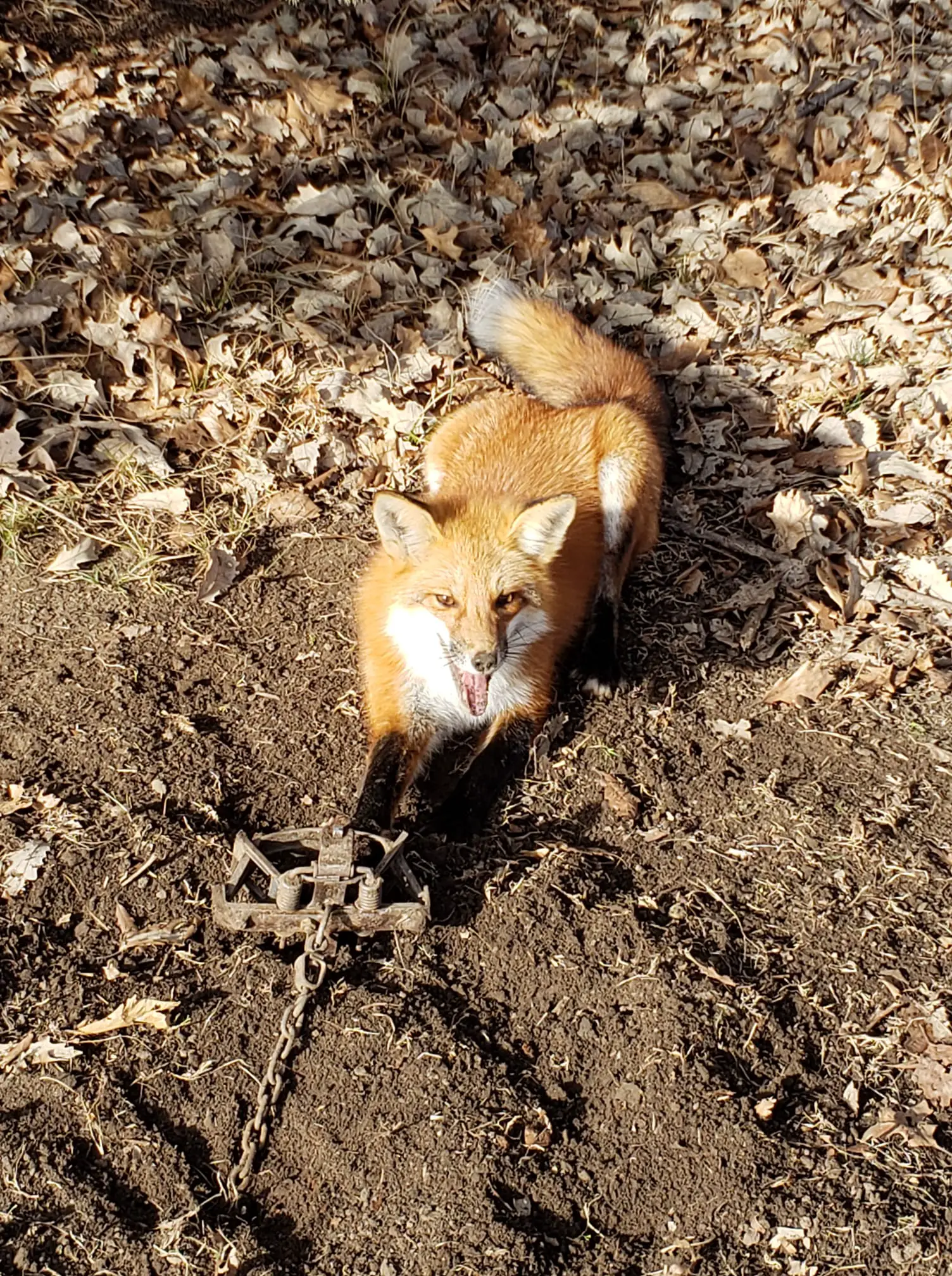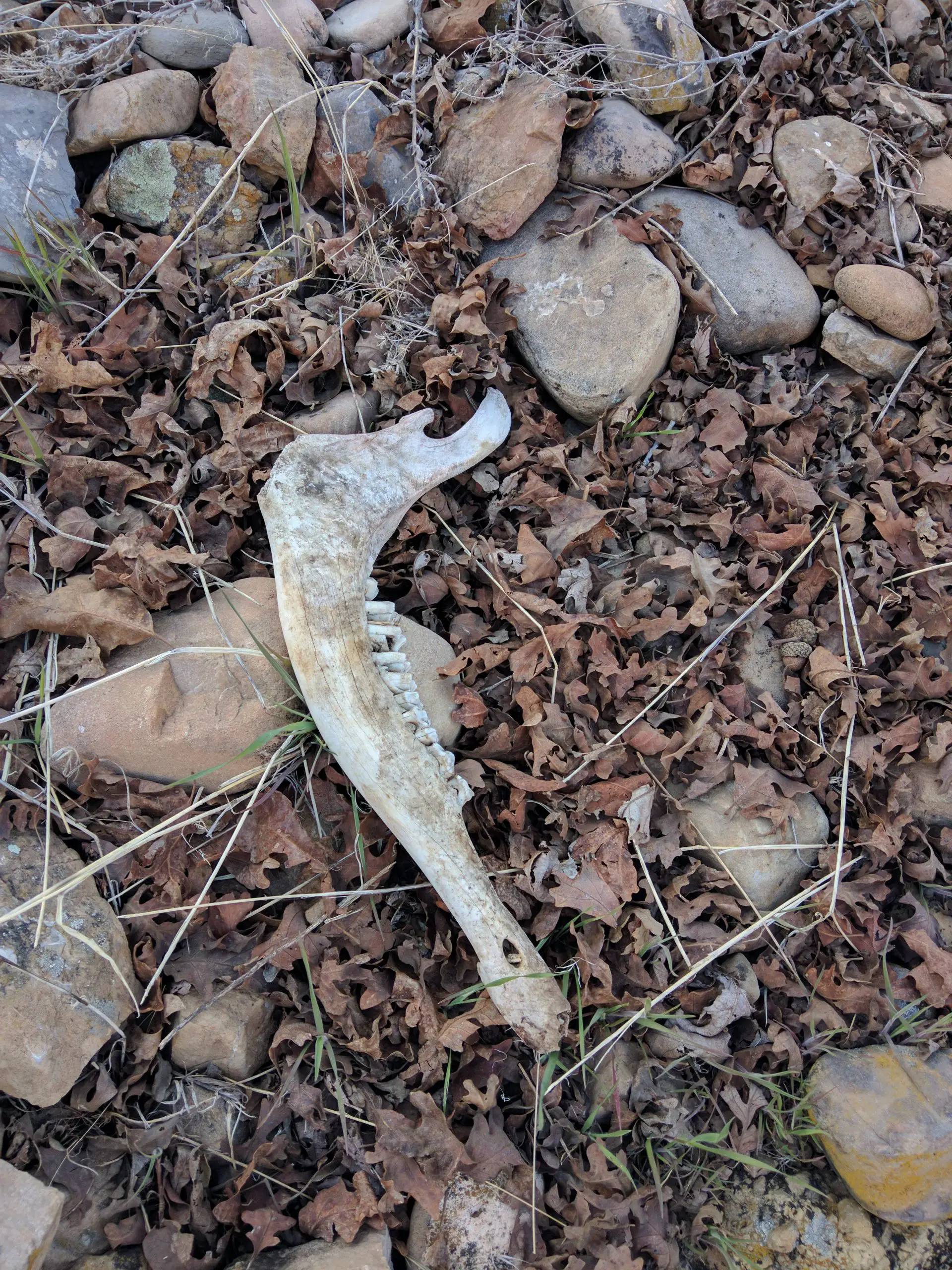Raccoon Trapping – Raccoon Traps to Eliminate This Pest
Over the years I have taken several jobs to remove raccoons from gardens, yards, and buildings. With a few traps you should be able to remove these raccoons or pests.
I started out trying to trap coyotes in the mountains but I ended up with a ton of raccoons. After that I started hearing some of my neighbors complaining about raccoons in their garden, yard or house. So this played a role in some of my suggestions on how to catch those easy to catch raccoons but also the super smart ones.
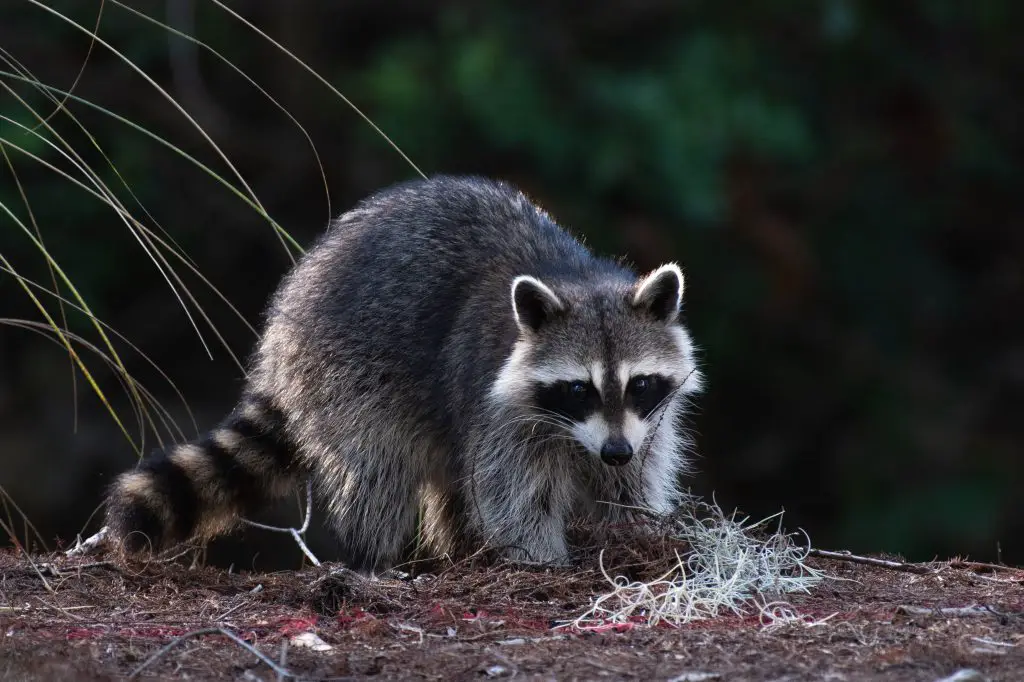
Raccoon Trapping Laws
So you need to catch a raccoon and remove it from you yard. I would first recommend looking at your local laws and keep those laws. You can be fined for not following the laws even if you don’t agree with them.
I live in Utah, and when you catch a raccoon you can not release the raccoon and it must be put down. They are not native to the state, so wildlife managers don’t want them here. You are also not allowed to transport the raccoon because raccoons return to the location they were caught in a very short time.
I see people posting facebook in several local groups who are in favor of not putting down the raccoons that they catch. They recommend people to drive the raccoon out of town and let it go and then they say they have done the same. I think it is really crazy that people are posting online that they are breaking the law and that they are recommending others do the same. Good way to get busted!
Also it is good to know the laws as to how many raccoons you can trap and when you can trap them. In many states you can trap pest raccoons as needed year round like in Alabama. In other states a license or certain permission is required to trap pests.
What Traps Catch Raccoons?
Raccoons are can be simple to trap if you are just trying to catch some of them. If you are trying to catch them all then it can be a bit more complicated because they are smart and learn from seeing other raccoons being caught.
Cage Traps or Live Traps for Raccoons
The first trap I would potentially uses to catch a raccoon is a cage trap. There are several advantages to using a cage trap. After you catch a raccoon it is easy to move the raccoon to a different location, or to a different part of your yard.
One of the downsides to using a cage trap is that it can be harder to dispatch the raccoon, because it is in the cage. Sometimes you can call your local animal control or wildlife officer and they can come and remove it for you.
Another down side to cage traps is that raccoons are smart and I have had tons of raccoons in the area but the smart ones wont go in the trap. I have caught four several juvenile raccoons in traps, but these traps are super common, so the wise raccoons don’t go in them.
Raccoon Cage Traps For Sale
Click the images below to see pricing:



Dog Proof Traps for Raccoons
Dog Proof traps can be highly effective at catching raccoons. They are also significantly cheeper than cage traps. This allows you can purchase more traps to catch more raccoons with the same amount of money. I have had raccoons completely ignore these traps, or eat all the surrounding bait and not get caught. I have also caught three large raccoons on the same night with these traps.
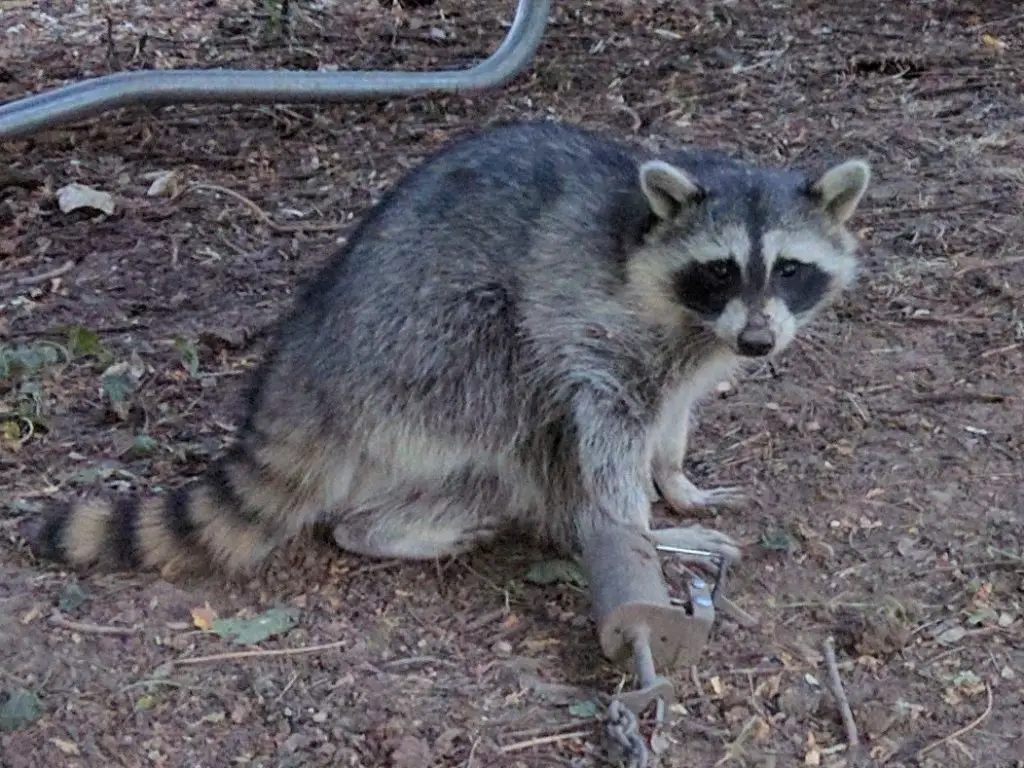
Dog proof traps and traps that are shaped like a cup. The cup has a trigger at the bottom of the trap when pulled the trap has a bar that closes around the raccoons foot at the top. To get the raccoon to pull the trigger at the bottom just fill the cup up with cat food or marshmallow. Marshmallows are the best. Check out our article about raccoon bait for more suggestions about what bait to use.
When setting dog proof traps you may find it easier to set by using a long screw driver. The springs can be a little stiff. Pull the dog or loose piece of metal down over the compressed spring bar and hook it in the slot at the bottom. It is easiest to set traps when there is no food bait in them.
Dog Proof Traps For Sale
Click image to see pricing:




Foothold Traps for Raccoons
Raccoons are very curious but can become weary of your traps. Be sure and check city regulations before using foothold traps inside the city.
When I am having a hard time catching raccoons because they are ignoring the cage traps and dog proof traps I change up my tactics so that I can catch them. These sets work similar to how I make a coyote dirt hole set and a coyote blind set.
First a dirt hole set for raccoons can be very effective because you burry the trap so they can’t see it. This can make the raccoon be much more comfortable to come in and step on your trap. Then you burry bait a small hole so the raccoon has to walk across the trap to get the bait.
When I was trapping in the neighbors garden trying to protect his food from a large family of raccoons this was the only trap setup that caught one of the raccoons that was smart enough to jump over one of my traps, and avoid it. I could tell it jumped over and around the trap because I could see its tracks in the mud.
The bait I would use is meat based because raccoons like it and it is different than what they normally get. They are more likely to investigate these sets.
Next a blind set is was super nice in the garden because there were rows of corn that the raccoons were revenging. They would clean out the garden and it was a very large garden with a lot of rows of corn.
I would set traps at the top of the rows and then use tomato cages to force the raccoon to walk right over the trap. I caught several raccoons using this method. The only down side to setting the traps close to your corn or other garden plants is the raccoon will tear them apart after it gets caught in the trap, if it can reach them. Setting traps along the edges of the corn where the raccoons were running or walking was also productive way to catch smart raccoons.
Foothold Traps for Hard to Catch Raccoons
Click the image to see pricing:

Where are the Raccoons Living?
Raccoons like hollow trees, dens, and small places to live. Some places I have found them living are in chimneys, attics, sheds, between a shed and a fence, woodpiles, and trash piles.
Finding where they are denning up during the day can be difficult. They find the place where they will not be disturbed. If you have a place like this you might look around for raccoon scat. If there are a lot of raccoons there will be a lot of scat.
At one house I was trapping at the home owner found where the raccoons were at. It was tucked in between a fence and a shed and there were big thick pine trees growing around the area. There was a pile of scat back there that would fill a five gallon bucket or more.

Catching Raccoons in Your Attic or Chimney
In the spring female raccoons are looking for dens and this causes them to start coming into house attics or chimneys. These raccoons can be hard to get out and may require additional help to get them out.
First you need to figure out where the raccoons are getting in. If they are living in your chimney then it might be that you need to add a cover to your chimney to keep them out. If you find a hole under the eves of your roof your are going to need to fix that so the problem does not happen again.
There is only one problem, the raccoon is still inside of your house. Covering the entrance while they are still inside will not keep them out. They will try their hardest to get out or maybe even find their way further into your house.
Setting traps can work to catch them when they come out of your house. A cage trap may work on the roof next to their entrance. The other traps may work better where they are coming off the roof.
Cap The Chimney To Keep Raccoons Out



Catching Baby Raccoons
Often raccoons are finding places to have babies in the spring and early summer. According to doyourownpestcontrol.com a mother raccoon can have up to seven babies at a time.
In the spring they are looking for places to nest and have young. A lot of times they find a house, shed, or other structure to use as a den. In the wild they will den in hollow trees or logs, so your chimney is not much different.
If you have baby raccoons you are trying to get out of your house you may need to get the babies out by hand after you have caught the mother raccoon or made it so she can’t get back into the house.
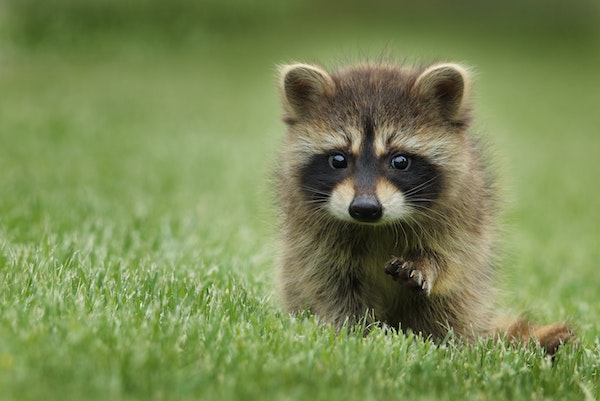
Raccoons and Rabies
Raccoons are full of rabies. According to the CDC raccoons are the second most reported animal to have rabies. They are second only to bats. So if you are working with wild animals then gloves are important for protection when handling them.
If you are bit by a raccoon seek medical attention immediately. They will probably suggest you get a rabies shot because of how common raccoon rabies is in raccoons.
Another common danger when raccoons are around is raccoon scat. There are some very deadly diseases in their scat so remove it and be carful you children don’t accidentally eat it.
Raccoon Bait
Many people have asked the, “question what bait should I use to catch raccoons?” There are many options but marshmallows are the very best option I have found, but usually marshmallows by themselves usually won’t do the trick so you need something stinky.
The reason I bait raccoons with marshmallows is I was called to a job and set up some traps and came back the next day and found that my dog proof traps had been malled by the raccoons but they would not stick their paws into the traps.
That day I had brought marshmallows to rebait the traps and the next morning all the traps were full of raccoons. They have a sweet tooth and it made for a good day of trapping. It also made the customers happy.
Best bait for Raccoon trapping
- Marshmallows
- Raccoon Corn Bait
- Corn
- Peanut Butter
- Chocolate Sirup
- Cat or Dog Food
- Hot Dogs
- Trapper Racoon Bait
When I am making raccoon bait I just go to the fridge with a baggie and get a little squirt of any condiment that is sweet or smelly. Then I can cut or poke a hole in the bag and squirt out a mix of grossness where I need the bait. Works like a charm.
Making Money Raccoon Trapping

The last tip I have for those of you who like raccoon trapping is offfer you services and make some extra cash doing it. Helping people fix their raccoon problems by trapping them and fixing issues with their house or sheds to keep the raccoons out can be a very lucrative business.
You can also trap raccoons for fur. Fur prices are not very much per raccoon but if you prepare a lot of raccoon pelt you can make some supplemental income to go with a pest control business.
Items Made From Raccoon Pelts
Fur coat made from raccoon pelts


Raccoon Pelts


Sources
- Do Your Own Pest Control – Trapping Raccoons
- CDC – Wild Animals
- Apocalyptic Prepping – How to Keep Raccoons Out of Your Chicken Coop
- Apocalyptic Prepping – How to Get Rid of Raccoons
Trapping By State
- Alabama Trapping
- Alaska Trapping
- Arizona Trapping
- Arkansas Trapping
- California
- Colorado
- Connecticut
- Delaware
- Florida
- Georgia
- Hawaii
- Idaho
- Illinois
- Indiana
- Iowa
- Kansas
- Kentucky
- Louisiana
- Maine
- Maryland
- Massachusetts
- Michigan
- Minnesota
- Mississippi
- Missouri
- Montana
- Nebraska
- Nevada
- New Hampshire
- New Jersey
- New Mexico
- New York
- North Carolina
- North Dakota
- Ohio
- Oklahoma
- Oregon
- Pennsylvania
- Rhode Island
- South Carolina
- South Dakota
- Tennessee
- Texas
- Utah Trapping
- Vermont
- Virginia
- Washington
- West Virginia Trapping
- Wisconsin
- Wyoming Trapping
